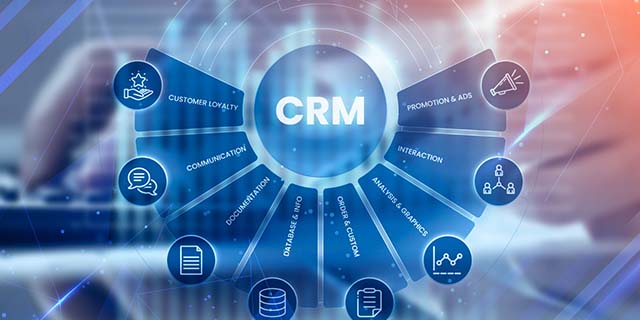
CRM (Customer Relationship Management) tools are software applications designed to help businesses manage their interactions with current and potential customers. These tools facilitate the organization, automation, and synchronization of sales, marketing, customer service, and technical support processes. Examples of popular CRM tools include Salesforce, HubSpot, Zoho CRM, Microsoft Dynamics 365, and Pipedrive. Each of these platforms offers various features such as contact management, lead tracking, sales forecasting, and reporting analytics, enabling companies to enhance customer relationships, improve communication, and drive sales growth effectively.
CRM (Customer Relationship Management) tools are software applications designed to help businesses manage interactions with current and potential customers. These tools work by centralizing customer data, allowing organizations to track communications, sales activities, and customer preferences in one place. For example, a CRM tool can automate email marketing campaigns, log customer interactions across various channels (like phone calls, emails, and social media), and provide analytics on customer behavior. By utilizing features such as contact management, lead tracking, and reporting, CRM tools enable businesses to enhance customer relationships, streamline processes, and ultimately drive sales growth. **Brief Answer:** CRM tools centralize customer data and interactions, automating tasks like email marketing and tracking communications to improve customer relationships and boost sales efficiency.


Choosing the right CRM (Customer Relationship Management) tools involves several key considerations to ensure they align with your business needs. First, assess your specific requirements, such as sales tracking, customer support, or marketing automation. Look for features that cater to these needs, like lead management, reporting capabilities, and integration with other software. Evaluate user-friendliness and scalability, ensuring the tool can grow with your business. Additionally, consider budget constraints and explore options that offer a good balance of features and cost. Reading reviews and seeking recommendations can also provide insights into the effectiveness of various CRM solutions. Examples of popular CRM tools include Salesforce, HubSpot, Zoho CRM, and Microsoft Dynamics 365, each offering unique features suited for different business sizes and industries. **Brief Answer:** To choose the right CRM tools, assess your business needs, evaluate features, consider user-friendliness and scalability, stay within budget, and read reviews. Popular examples include Salesforce, HubSpot, Zoho CRM, and Microsoft Dynamics 365.


Technical reading about CRM (Customer Relationship Management) tools involves exploring various software solutions designed to help businesses manage customer interactions, streamline processes, and enhance relationships. Examples of popular CRM tools include Salesforce, which offers extensive customization and integration capabilities; HubSpot, known for its user-friendly interface and marketing automation features; and Zoho CRM, which provides a cost-effective solution with a wide range of functionalities. Each tool has unique strengths, such as analytics, reporting, and mobile accessibility, making it essential for organizations to assess their specific needs before selecting a CRM system. **Brief Answer:** Technical reading on CRM tools covers software like Salesforce, HubSpot, and Zoho CRM, each offering distinct features for managing customer relationships effectively.


TEL:866-460-7666
EMAIL:contact@easiio.com
ADD.:11501 Dublin Blvd. Suite 200, Dublin, CA, 94568